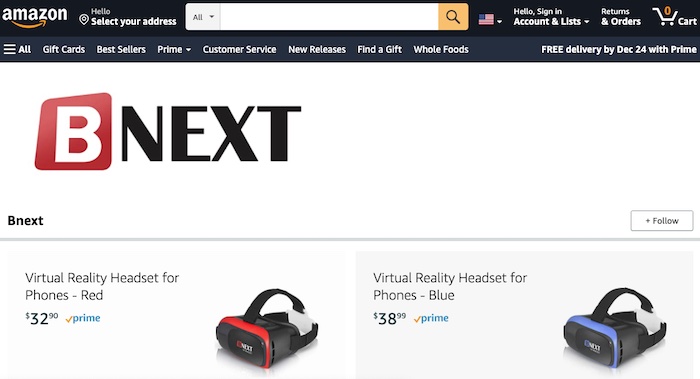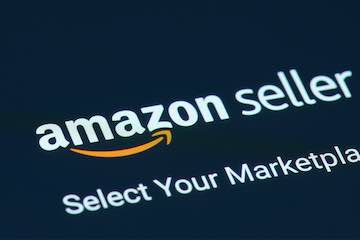Buyouts of Amazon marketplace sellers are booming. Aggregators are scooping up successful small sellers and creating large and lucrative portfolio companies. The acquisitions are mostly fueled by angel, venture capital, and private equity funding. Aggregators pay anywhere from hundreds of thousands of dollars to the low millions.
Mark Daoust is founder and CEO of Quiet Light Brokerage, which acts as an intermediary between Amazon sellers and acquirers. He receives about three calls a week regarding selling or buying an Amazon marketplace business. Much of the interest is from private equity firms that provide their acquisition criteria.
Daoust believes this buyout surge will last for several years. He says, “Investors are hungry for deal flow. We are at the beginning of a massive wealth transfer.” He estimates that potential acquirers have raised over $1 billion.
Why Sell?
Fifty-four percent of third-party sellers operate their Amazon business as a side-hustle, according to Jungle Scout, a research platform for marketplace sellers. Thirty-seven percent have full-time jobs.
For some, selling on Amazon may be much more time-consuming than they initially thought. Limited resources often prevent them from expanding, updating their technology, or hiring employees. According to Daoust, disruptions in inventory and the supply chain can be devastating for small sellers and put them in a tenuous position with Amazon.
Many marketplace sellers view Amazon’s policies and practices as capricious, fostering an unstable environment. Accounts can be suspended for questionable reasons, and getting back onto the marketplace can be a long bureaucratic process. Sellers also fear Amazon’s changing algorithms can restrict visibility and sales.
Some sellers seek new opportunities. That’s the case of Idan Barzilay, an Israel-based merchant who owned Bnext, an Amazon seller of virtual reality headsets and toys. He sold his business earlier this year to aggregator Perch after two years on the marketplace. Barzilay stated that Bnext’s revenue exceeded $1 million, and while he experienced difficulties dealing with Amazon, he sold to pursue new endeavors.

Bnext sells branded virtual-reality headsets and toys on Amazon’s marketplace. Owner Idan Barzilay sold the business in early 2020 to Perch, an aggregator.
Daoust points out that even profitable Amazon sellers can be cash poor. A growing company often has to use all the money it brings in to purchase more inventory, leaving few resources for marketing or technology upgrades. They begin to feel frustrated and are motivated to sell.
Acquisition Candidates
- Aggregators look for brand sellers that manufacture or control their products. Some use a scorecard with many factors, including a seller’s rating on Amazon and the number of positive reviews.
- Most aggregators will only purchase Fulfillment by Amazon merchants because they do not want to deal with logistics and for the relative ease of qualifying for Prime status. Sixty-six percent of the top 10,000 Amazon sellers use FBA, according to Marketplace Pulse.
- Buyers seek robust net margins. Some will not consider sellers with less than 20 percent net margins.
- A loyal following and a substantial number of repeat customers are helpful.
Aggregators
Aggregators provide resources and expertise in marketing, inventory management, and technology. Ownership of many small brands provides operational and marketing efficiencies that cut costs and maximize profits.
Many of the aggregator companies were founded by individuals who either started their own ecommerce companies or had deep retail experience. According to Daoust, aggregators have been successful in quickly boosting revenues of small brands, making them appealing investment targets.
Leading aggregators include:
- Boosted Commerce. This company purchases third-party Amazon FBA sellers only. Most of its acquired brands are in the skin care and nutritional supplement area. Launched in 2019 in California by retail veteran Charlie Chanaratsopon, the founder of accessory retail chain Charming Charlie, Boosted Commerce raised $87 million in September 2020 from venture capital firms and individual investors.
- Goja. Established in 2009, Goja is a major Amazon seller, offering its own brands (photography goods, natural oils, more) and those purchased from other Amazon marketplace sellers. It has its own fulfillment services and proprietary technology.
- Heroes. Based in the U.K., Heroes raised $65 million in equity and debt in October 2020 to acquire high-performing FBA businesses in the baby, pets, homeware, kitchenware, garden, sports, and outdoors categories.
- Heyday. Founded in August 2020 in San Francisco, Heyday has secured $175 million in venture capital funding. Executives from Amazon, eBay, PayPal, and Magento also invested. Heyday founder Sebastian Rymarz worked at investment firms Goldman Sachs and TPG and fintech Fundbox. Heyday has ambitious goals, expecting to generate $20 million in annual revenue by the end of 2020, and achieve $200 million next year. Heyday is also developing technology tools for small Amazon merchants.
- Perch. Boston-based Perch was founded in 2019 and, to date, has acquired 20 Amazon sellers. It buys FBA merchants that have strong customer reviews and are one of the top products in their category. Perch is led by executives from ecommerce company Wayfair and management consulting firm Bain & Company. In October 2020, Perch received $123.5 million in funding from a Boston angel group and a VC firm.
- SellerX. This Berlin-based start-up was founded by serial entrepreneurs with experience in the U.K., U.S., and Latin America. In November, it raised $118 million in debt and equity seed funding. Investors include VC firms as well as former Amazon executives and the CEO of a large German Amazon seller.
According to co-founder Philipp Triebel, SellerX’s focus will be evergreen consumer goods such as home goods, pets, garden supplies, and beauty. It has acquired one company to date.
- Thrasio. Founded in 2018 in Walpole, Massachusetts, Thrasio claims to be the largest acquirer of Amazon FBA sellers. The company has raised over $360 million, including $260 million in July 2020, mostly from private equity firms. Thrasio has acquired more than 50 Amazon businesses and offers more than 6,000 products.







